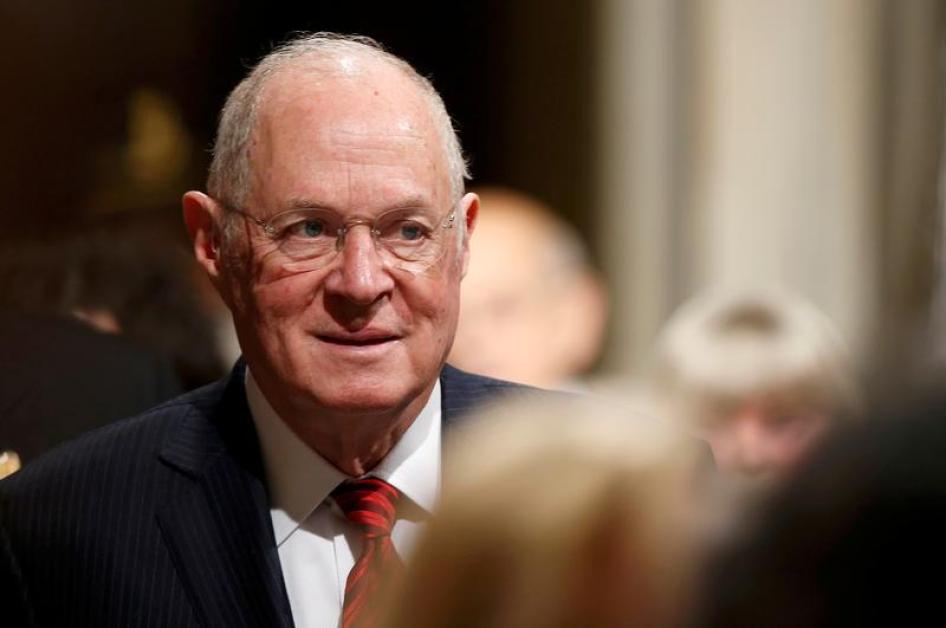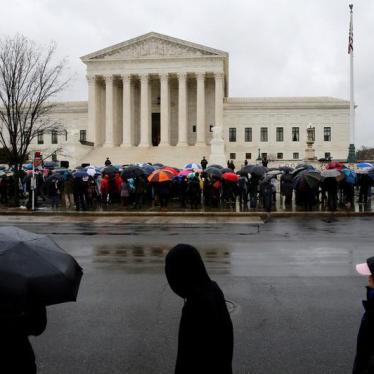President Donald Trump is set to announce his nominee to replace Supreme Court Justice Anthony Kennedy, who will step down this summer after 30 years on the bench. A swing vote on a deeply divided court, Kennedy sided with the majority on many troubling decisions but was also a key figure in several that advanced human rights protections, including on gay rights, abortion rights, and affirmative action.
In Lawrence v. Texas in 2003, the Supreme Court struck down a Texas law prohibiting same-sex sexual activity. It was a 6-3 ruling with Kennedy writing the majority opinion. It invalidated sodomy laws in 13 other states, making same-sex sexual activity legal in all US states.
Ten years later, Kennedy wrote the majority opinion in United States v. Windsor, which struck down the portion of the Defense of Marriage Act (DOMA) that defined marriage as between a man and a woman for federal purposes.
In 2015, Kennedy wrote the majority opinion and was the swing vote in Obergefell v. Hodges, a landmark ruling making same sex marriage legal across the US.
Not all decisions on gay rights where Kennedy wrote the majority opinion were clear victories for LGBT people. In the recent Masterpiece Cakeshop v. Colorado Civil Rights Commission case involving a baker who objected to make a wedding cake for a same-sex couple, the Supreme Court ruled for the baker. Kennedy wrote for a 7-2 majority, in a decision so narrowly framed that it isn’t clear how broad a precedent it actually sets. The ruling was a deep disappointment to many supporters of LGBT equality. Kennedy did take pains, though, to emphasize in his opinion that “gay persons and gay couples cannot be treated as social outcasts or as inferior in dignity and worth.”
Although Kennedy has not always taken positions that advanced the rights of LGBT people, women, and minority groups, when he has done so it has often been transformative. Now some of the rights he helped drive the court to embrace and uphold, like abortion and marriage equality, may face an existential threat. Trump has signalled a pro-life litmus test for any potential candidate to replace Kennedy. When the Senate gathers to consider Trump’s nominee, they need to remember that some of the United States’ most important advances in equality and human rights protection hinge on the court’s decisions.








